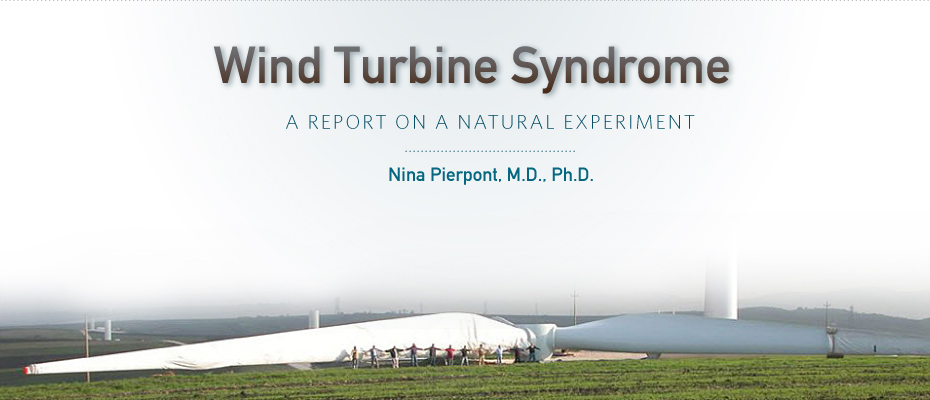Editorial: Wind energy is a government subsidized fraud
Aug 19, 2010
—Eric Bibler, WTS.com guest editor
Critics of wind energy are absolutely right—the entire idea of wind energy is nonsense. It’s utterly impractical and unsuitable for the production of electricity. It’s a government subsidized fraud. It’s a huge waste of resources, breathtaking in its transparent and inevitable futility, and it destroys our quality of life (and valuable habitat for wildlife) by industrializing vast tracts of land, even as it promises to save us from the sins and excesses of prior, arguably much more defensible, forms of industrialization.
I don’t see how anyone can conclude otherwise.
Critics are also correct that ALL means of producing electricity—which are nothing more than the conversion of one form of potential energy into another form, i.e. usable electric energy—create unwanted adverse effects and/or waste. No means of generating electricity is without consequences. Only a very few forms of potential energy are “dense”—meaning that the energy source which can be converted into electricity is very portable and dense. In fact, the only forms of energy that possess high density are fossil fuels and nukes. Period.
In effect, we’re wasting our breath—not to mention our time, effort, money, land, health, habitat, quality of life, and endless good intentions—pursuing wind and solar energy. They are not reliable and they will never supply a meaningful amount of electrical energy. And the required dedication of resources—including land, infrastructure, rare strategic minerals, and so forth—is clearly unacceptable to anyone who has access to a calculator or a number two pencil and some scrap paper (assuming rudimentary math skills).
Fossil fuels spew trillions of tons of pollutants into the atmosphere. No one really knows where the byproducts go (CO2 and many far uglier contaminants including mercury) or precisely what effect they have on the environment. But the evidence is not encouraging.
But fossil fuels carry distinct advantages, including the fact that they are relatively plentiful and cheap (relative to the useful energy that can be derived by their “conversion” to electrical energy via combustion) and they are extremely dense. Fossil fuels are extremely portable (you can even carry a tank of them with you in your car) and very dependable and reliable. The technology exists to scrub emissions of most of the worst contaminants, but what about all of those trillions of tons of carbon?
Nuclear fuel is also very dense, relatively plentiful, reasonably priced and produces a predictable flow of electricity in a reactor. There are issues, arguably manageable, related to safety and waste with nukes as well. But the amount of nuclear waste produced during the lifetime of an 85 year old fits in a Coke can. You can store the waste in glass blocks, in a sealed room that is remotely monitored, and you always know where it is. In fact, you can retrieve thirty years from now and reprocess it for additional energy output if this becomes cost effective. It is a form of pollution that you understand and control vs. pollution that you don’t really understand and can’t control.
So, realistically, the choices for producing large, reliable amounts of electricity are, 1) burn fossil fuel, 2) build nuclear reactors, or 3) turn out the lights.
Electric power is directly correlated to wealth and standard of living all over the world. No one in developed or developing nations is going to take a vow of poverty in pursuit of the goal of emitting less carbon dioxide into the air.
None of the other alternatives pencil out. None. Show me the numbers. I’ll bet you you can’t do it.
We should praise God that he gave us the raw material—nuclear fuel which contains almost unlimited potential energy—and the intelligence to use it. And we should apply ourselves to developing robust solutions to problems related to safety and storage of waste. But we should get on with it instead of denying the obvious.
Using nuclear fuel to produce electricity has drawbacks. In my opinion, this is only relevant if other means of producing electricity are trouble free, which they are not. All methods have drawbacks. The question is, which one, or ones of them are most advantageous after all factors are considered? If carbon dioxide and other GHG (greenhouse gases) are reaching lethal proportions and creating unacceptable consequences, then there is only one non-GHG producing fuel that can be substituted.
If you’re truly green, you have to be committed to nukes.
As an aside, I don’t think that it is particularly important that we “prove” conclusively that GHG emissions are “responsible” for global warming and climate change before we decide to make some choices. It may be 100 years before this is “proven,” or it may never be “proven” beyond the shadow of a doubt. But if the correlation is strong—and it is—and if the evidence is strongly suggestive of a mechanism, or series of mechanisms, that may effect such change, that is sufficient motivation in my view to begin substituting nuclear energy (which is completely feasible) for fossil fuels in producing electricity.
What have we got to lose? It costs more—but not that much more—than coal.
Climate science is insanely complicated. Weather and climate are the ultimate multi-factor problems—so complicated that they appear almost chaotic and random in many ways. Why wait if there is an alternative at an acceptable cost? We’ve already made the philosophical commitment to pay more for energy that is less GHG-intensive through massive subsidies for wind and solar. At least nuclear energy actually works!
Wind Energy Powerpoint / Briefing Books
I think that a revised wind energy powerpoint presentation is a fine idea. But if anyone intends to organize one around the idea that “we’re all for wind—but only if we do it right”—you can count me out. The core idea ought to be that it simply doesn’t work and that the consequences are routinely downplayed or ignored. A core idea ought to extrapolate the idea of wind energy to a grand scale.
- How much land, how many roads, how many transmission lines, how many back-up units would be required to make a difference?
- How much would GHG emissions actually be reduced—after admitting the need for redundant conventional production?
- Where are we going to put them all: 1) conservation areas? 2) farmland? 3) national parks? 4) offshore? 5) every pristine mountain ridge (with attendant scarring of the landscape for access roads)? 6) in your neighborhood—on your block—next to your house?
I think if one creates a powerpoint that doesn’t insist that the whole idea is nuts—he’s nuts.
Eric Bibler is a writer living on Cape Cod. (Yes, the glasses are real.)


Comment by Sheila K. Bowen on 08/29/2010 at 1:17 pm
This is a very good article, Eric.I hope that you will continue to contribute to this site.
Comment by Roland on 09/06/2010 at 5:03 am
I like the comment about the calculator and pencil; this is what I have been thinking for many years.
It is sad that green environmentalist do not know how to use a calculator and have difficulties in doing maths with pencil and paper.
How did this happen that the green environmentalists have become the biggest threat to the global environment and civilisation?
Sadly, the waste in renewable technologies and research will prevent the planet from actually doing something decisive globally about global warming.
Comment by Steve Hanes on 11/15/2010 at 2:32 pm
The facts are emerging, and the concept of wind as a safe and efficient renewable source of energy is daily being exposed as fraud.
In Virginia, today, there is not one industrial turbine operating on a ridge top–but the wind developers are trying hard to change that. We, the Blue Ridge Mountain Defenders, are fighting every day to overcome the wind energy forces. The troubling thing to be [me?] is that otherwise good and intelligent people in organizations such as The Sierra Club are standing against us! What are they thinking!
Comment by Dylan Emick on 11/29/2011 at 10:24 am
Great Article. I’m a Junior in high school and used many of your facts in my argumentative essay, going against wind power. It was very helpful. Thanks a bunch and keep ’em comin!!